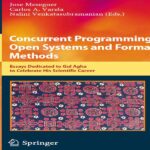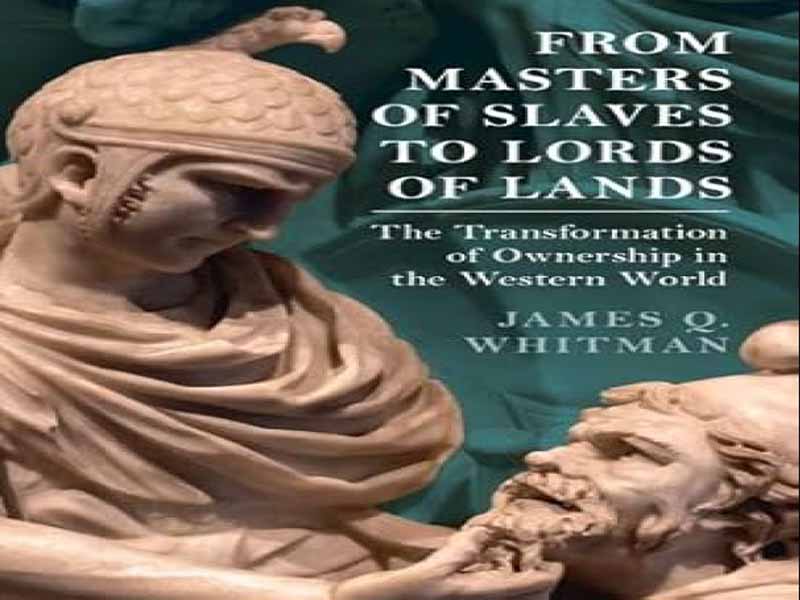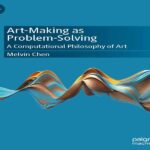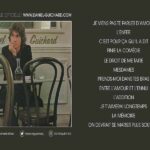- عنوان کتاب: From Masters of Slaves to Lords of Lands – The Transformation of Ownership in the Western World
- نویسنده: JAMES Q. WHITMAN
- حوزه: دنیای غرب
- سال انتشار: 2025
- تعداد صفحه: 453
- زبان اصلی: انگلیسی
- نوع فایل: pdf
- حجم فایل: 2.42 مگابایت
ویلیام بلکستون، نویسنده برجسته تفسیر قوانین انگلستان، در سال 1765، نوشت: «هیچ چیزی به عنوان حق مالکیت عموماً به تخیل نمی رسد و محبت های بشر را درگیر می کند». این جمله که یکی از نقلشدهترین مطالب در ادبیات حقوقی است، حقیقتی آشنا را در مورد روانشناسی انسان بیان میکند: اندیشه مالکیت میل را برمیانگیزد. ما دوست داریم خود را مالک تصور کنیم. اما چه نوع اشیایی “عاطفه ما را درگیر می کند”؟ وقتی دارایی «تخیل ما را تحت تأثیر قرار می دهد»، چه چیزی را تصور می کنیم؟ برای خود بلکستون، قبل از هر چیز یک پاسخ وجود داشت: زمین. او مشهور است که حق مالکیت را به عنوان «آن تسلط یگانه و استبدادی بر چیزهای خارجی جهان، به استثنای کامل حق هر فرد دیگری در جهان هستی» تجلیل میکند – و سپس توضیح میدهد که با «امور خارجی جهان» بهویژه «تسلط بر زمین»، «یک نقطه مشخص از زمین» یا «یک میدان مشخص» را در نظر داشته است. او فقط به عنوان یک فکر بعدی اضافه کرد «یا . . . یک جواهر.» هنگامی که حق مالکیت به تخیل ویلیام بلکستون رسید، اولین چیزی که به ذهن او خطور کرد، فکر یک انگلیسی قرن هجدهم به عنوان مالک «تنها و مستبد» املاک بود. از این رو، او نماینده معمولی سنت کامن لا بود، میراثی از نظم فئودالی چند صد ساله که در آن هیچ شرایطی از نظر اجتماعی مطلوبتر از ارباب سرزمین بودن وجود نداشت. دو قرن و نیم بعد، زمین هنوز در مرکز تخیل حقوق مالکیت در آمریکای معمولی حاکم است. همانطور که فرهنگ لغت Merriam-Webster گزارش می دهد، کلمه “مالکیت” به معنای “چیزی متعلق به یا دارای مالکیت است: به طور خاص: یک قطعه املاک و مستغلات”. هنگامی که گویشوران انگلیسی آمریکایی خود را به عنوان مالک “مال” توصیف می کنند، منظور آنها مالکیت زمین است. چیزی متناقض در این مورد وجود دارد، زیرا زمین به هیچ وجه در آمریکای مدرن از نظر اقتصادی یا اجتماعی به اندازه انگلستان بلکستون مهم نیست.5 امروز، ثروت مردم حداقل به اندازه املاک و مستغلات آنها به صندوق بازنشستگی آنها بستگی دارد و موقعیت اجتماعی آمریکا دیگر از ارباب بارونی یک ارباب نشات نمی گیرد. با این وجود، وقتی آمریکاییها کلمه «مال» را میشنوند، چیزی که ابتدا به ذهنشان میآید هنوز هم همان چیزی است که به ذهن بلکاستون میرسد: تصویر زمینهای کشاورزی. همانطور که کارول رز، با بصیرتترین محقق مالکیت، پیشنهاد میکند، وقتی در مورد ملک فکر میکنیم، با «تصویر کردن» آن شروع میکنیم. و در آمریکا چیزی که ما در ابتدا تصور می کنیم زمین است.
“There is nothing which so generally strikes the imagination, and engages the affections of mankind,” wrote William Blackstone, eminent author of the Commentaries on the Laws of England, in 1765, “as the right of property.” This line, one of the most quoted in the literature of the law, states a familiar truth about human psychology: The thought of property kindles desire; we like to imagine ourselves as owners. But what sorts of objects “engage our affections”? When property “strikes our imagination,” what is it that we imagine? For Blackstone himself, there was one answer first and foremost: land. He famously celebrated the right of property as “that sole and despotic dominion over the external things of the world, in total exclusion of the right of any other individual in the universe” – and then went on to explain that by “the external things of world” he had in mind in particular “the dominion of land,” of “a determinate spot of ground” or “a particular field.” Only as a sort of afterthought did he add “or . . . a jewel.” When the right of property struck the imagination of William Blackstone, what sprang to his mind first was the thought of an eighteenth-century Englishman as “sole and despotic” proprietor of real estate. In this, he was a typical representative of the common law tradition, a legacy of a centuries-old feudal order in which there was no condition more socially desirable than being the lord of lands. Two and half centuries later, land still reigns at the center of the property law imagination in common-law America. The word “property,” as the Merriam-Webster dictionary reports, signifies “something owned or possessed: specifically: a piece of real estate.” When speakers of American English describe themselves as owning “property,” what they mean is that they own land. There is something paradoxical about this, since land is by no means as economically or socially important in modern America as it was in the England of Blackstone.5 Today, people’s fortunes depend at least as much on their pension funds as on their real estate, and American social status no longer derives from being baronial lord of a manor. Nevertheless, when Americans hear the word “property,” what springs to their minds first is still what sprang to the mind of Blackstone: the image of acreage. As Carol Rose, the most insightful of property scholars, suggests, when we think about property, we begin by “picturing” it; and in America what we picture first is land.
این کتاب را میتوانید از لینک زیر بصورت رایگان دانلود کنید:
Download: From Masters of Slaves to Lords of Lands





































نظرات کاربران